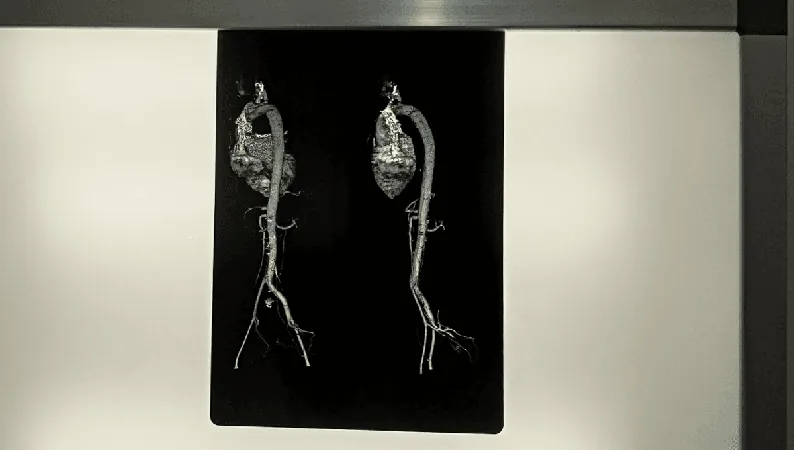
Is Your Aorta Aging Faster Than You? A Shocking Look at Organ Aging
2025-08-02
Author: Wai
A Revolutionary Study Reimagines Aging
A groundbreaking study has flipped the script on our understanding of aging, treating the body not as a single entity but as a collection of organs that age at different rates. For the first time, researchers have meticulously mapped out aging across various organs, focusing on protein markers over a staggering 50-year period.
This innovative research has unveiled what the authors describe as a "proteomic blueprint of aging," revealing how our body's proteins transform as we age. It turns out that significant aging processes ramp up dramatically around age 50, but the roots of systemic aging can be traced back to age 30. Astonishingly, one organ is ahead of the game, aging much quicker than the rest.
Your Aorta: The Unsung Aging Hero
Did you know your aorta ages faster than any other organ? According to the researchers, this vital blood vessel showcases the most noticeable and ongoing changes in protein levels throughout our lifespan. At 30, while most organs maintain a stable protein profile, the aorta stands out alongside the adrenal gland and spleen for its dramatic fluctuations.
"Among all organs, the aorta exhibited the most pronounced and continuous proteomic fluctuations across the lifespan," explains Professor Guang-Hui Liu.
The Startling Role of Blood Vessels
But that’s not all—studies reveal that blood vessels aren't merely conduits; they start to act like communication towers as they age. Professor Liu highlights this striking discovery, noting how these vessels broadcast proteins like GAS6, which can accelerate aging in other organs. This means your aorta isn't just aging silently—it’s sending out signals!
Revolutionizing Our Understanding of Aging
This game-changing study not only challenges traditional beliefs about aging but also opens doors for targeted interventions. By identifying organs that age more rapidly, researchers hope to find ways to neutralize the harmful proteins they emit—potentially revolutionizing our approach to chronic disease prevention.
Professor Liu summarizes the implications: "This study reframes aging research by highlighting how organs communicate through blood-borne factors. Understanding organ-specific aging can empower us to combat the symptoms of aging and improve our quality of life."
The Future of Aging Research Is Bright!
As we uncover the mechanisms behind organ aging, our focus on individual organs like the aorta could very well change the way we approach health and wellness in later years. Imagine a future where we can slow down aging at its source—thanks to your fast-aging aorta!

 Brasil (PT)
Brasil (PT)
 Canada (EN)
Canada (EN)
 Chile (ES)
Chile (ES)
 Česko (CS)
Česko (CS)
 대한민국 (KO)
대한민국 (KO)
 España (ES)
España (ES)
 France (FR)
France (FR)
 Hong Kong (EN)
Hong Kong (EN)
 Italia (IT)
Italia (IT)
 日本 (JA)
日本 (JA)
 Magyarország (HU)
Magyarország (HU)
 Norge (NO)
Norge (NO)
 Polska (PL)
Polska (PL)
 Schweiz (DE)
Schweiz (DE)
 Singapore (EN)
Singapore (EN)
 Sverige (SV)
Sverige (SV)
 Suomi (FI)
Suomi (FI)
 Türkiye (TR)
Türkiye (TR)
 الإمارات العربية المتحدة (AR)
الإمارات العربية المتحدة (AR)